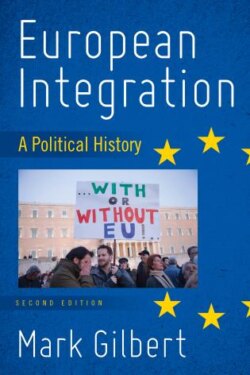Читать книгу European Integration - Mark Gilbert - Страница 20
На сайте Литреса книга снята с продажи.
The Ideal of European Unity
Оглавление◆ ◆ ◆
The idea of European political and economic integration was born of the historical experience of Europe in the first half of the twentieth century. Europe’s two civil wars embedded the conviction among policy makers and intellectuals that it was necessary to supersede the nationalism, both economic and political, that had destroyed the European continent almost beyond repair and had led to the loss of its global primacy.
There was, however, nothing inevitable about the postwar “European construction.” It is a mistake to think that greater integration of Europe’s nation-states was ordained by History, as some accounts imply. History is made by human agents: it does not unfold in an ineluctable pattern. Integration happened because European politicians decided it was a means of solving concrete economic and political problems for their peoples. From the first, the notion of greater European political and economic unity was concerned with establishing security through prosperity: a concrete objective. Whenever Europe’s politicians have forgotten this fact, and have given a loose rein to their idealism (or will to power), their peoples have reminded them brusquely of the core goal. “Europe,” as a political project, will always stand or fall by its ability to generate prosperity and to make the lives of the peoples of Europe safer and better. Many of the troubles of the European Union now can be attributed to the fact that the political elites decried by today’s populists have given their peoples the impression that reinforcing the EU’s powers has become an end in itself, not a means.
Europeans are unsurprisingly suspicious of political projects that sacrifice their immediate personal welfare for shadowy future goals. Nationalism, fascism, and communism—the three dominating ideologies of twentieth-century Europe—all imposed huge sacrifices. To use Arthur Koestler’s metaphor, all three ideologies conducted great “vivisectionist” experiments on the people of Europe (and beyond), but they left behind them only catastrophic destruction, millions of dead, and a moral desert. The optimism of the nineteenth century ended abruptly in the despair of the twentieth: Verdun, the Great Depression, racial hatred, and the abyss of genocide and total war. European integration was a moral response to these evils: it was an attempt to show the rest of the world (and to prove to Europeans themselves) that Europe could construct political institutions worthy of its civilization’s greatest achievements and of its peoples’ genius, to employ a word that statesmen used quite naturally in the 1940s.
